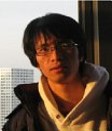Keynote 1
7/23/2020 10:14:48 AMSmart sensors for health care application: challenges and opportunities
Prof. Nguyen Duc Hoa
Hanoi University of Science and Technology, Vietnam
Abstract
Smart or intelligent sensors have been playing an important role in different industries especially with the rapid development of the fourth industrial revolution. The roles of smart sensors are becoming more important and reliable in personal health care applications because many personal devices such as smart phone, smart watches etc. are easily connected to the internet enabling the point-of-care, and everywhere applications. Especially, with the revolution of the Internet of Things and wearable systems, those care integrated with smart sensors for data collection and analysis are changing the way personal care services, giving many challenges and opportunities in development of smart sensors. Yes, smart sensors are gaining increasing attention for health screening, diagnosis, monitoring, and treatment purposes thanks to their non-invasive, real time monitoring, easy to use, point-of-care applications, etc. However, there are many challenges and opportunities in development of new smart sensors to improve the effectiveness, efficiency, safety and sustainability of healthcare services in acute and chronic conditions. In this talk, I will introduce the overview of smart sensors for IoT and its applicability in healthcare applications. Some insights about current trends and an outlook on future developments of smart sensors in healthcare systems are introduced. I will introduce the up-to-date technology of smart nanosensors fabrication, their potential applications in IoT and healthcare. I also introduce the challenges in development of smart nanosensors and their integration in IoT devices. Finally, I will introduce some results of our group on the development of smart nanosensors and their application in and environmental monitoring.
Biography
 Nguyen Duc Hoa obtained his PhD degree in Materials Science and Engineering in 2009 at Chungnam National University in Korea. He awarded JSPS fellowship and conducted the research at National Institute for Materials Science (NIMS, Japan) from 2009 to 2011. Currently, he is a full Professor at Hanoi University of Science and Technology, Vietnam. He has published more than 100+ ISI papers. He has a total of about 4000 citations with a H index of 33. His research activity has covered a wide range of nanostructured materials from synthesis, fundamental, and applications. He collaborated in several projects focusing on the outreach and education of students in the thematic of pollutant gases and related smart sensing platforms useful for their detection. He also developed inorganic materials and the use of machine learning towards smart sensing
Nguyen Duc Hoa obtained his PhD degree in Materials Science and Engineering in 2009 at Chungnam National University in Korea. He awarded JSPS fellowship and conducted the research at National Institute for Materials Science (NIMS, Japan) from 2009 to 2011. Currently, he is a full Professor at Hanoi University of Science and Technology, Vietnam. He has published more than 100+ ISI papers. He has a total of about 4000 citations with a H index of 33. His research activity has covered a wide range of nanostructured materials from synthesis, fundamental, and applications. He collaborated in several projects focusing on the outreach and education of students in the thematic of pollutant gases and related smart sensing platforms useful for their detection. He also developed inorganic materials and the use of machine learning towards smart sensing